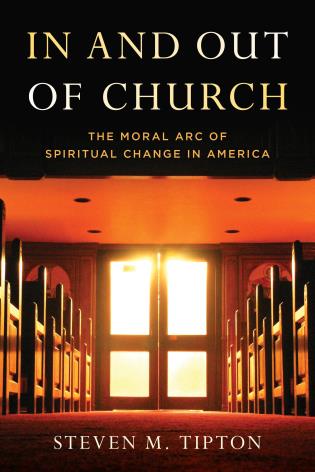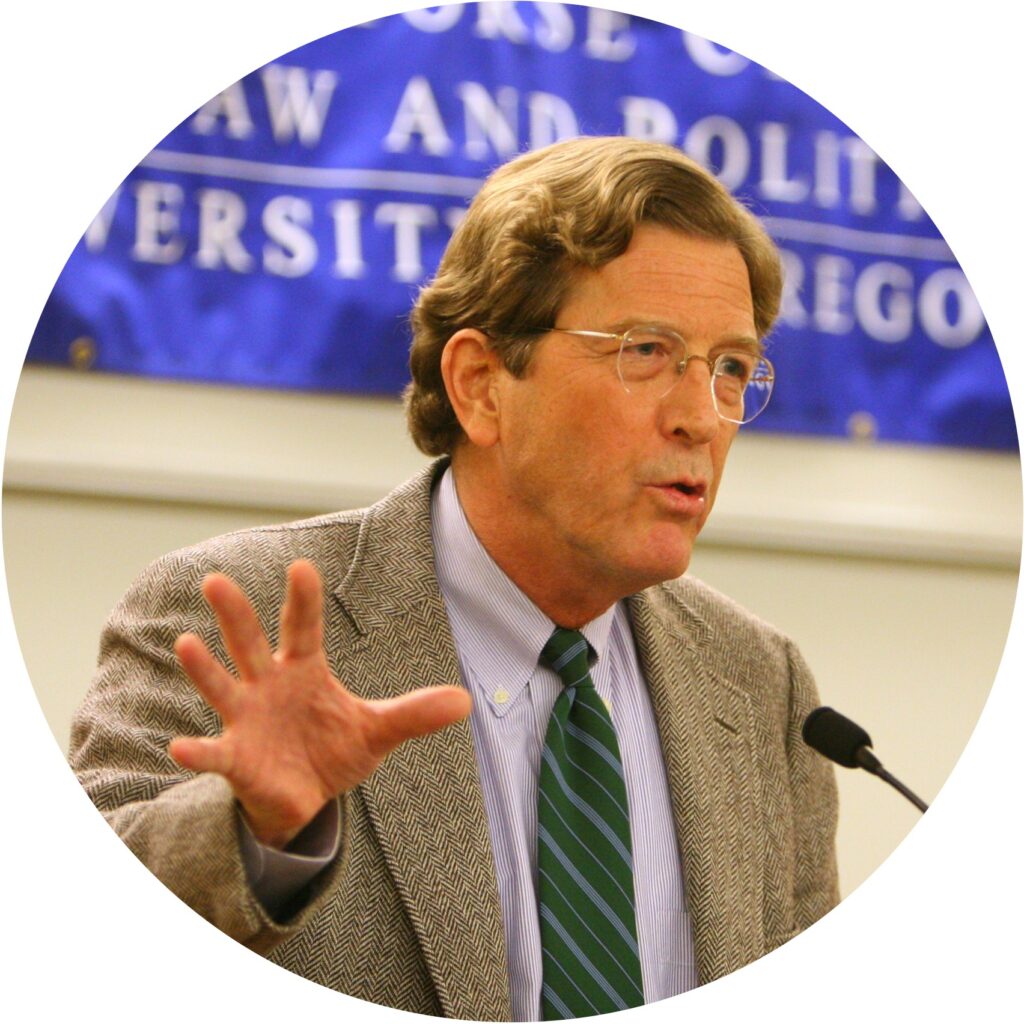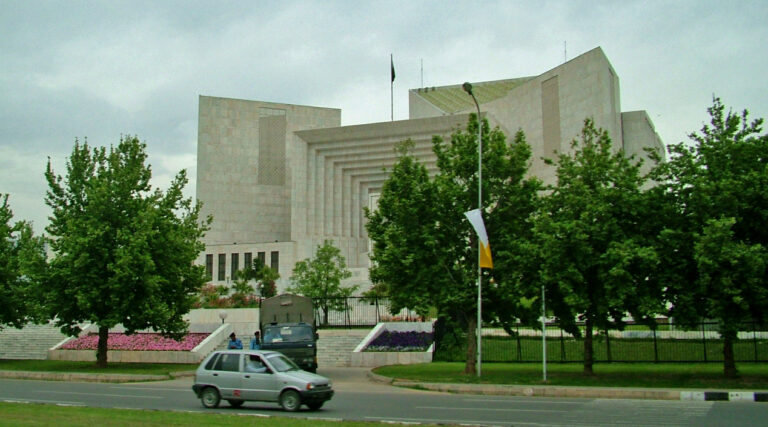
In and Out of Church
Steven Tipton
The following is an adapted excerpt from Steven Tipton’s new book, “In and Out of Church: The Moral Arc of Spiritual Change in America.” With permission from Rowman & Littlefield Publishers, 2025.
Freedom of conscience runs deep in the American grain of religious practice and belief all the way back to its Reformation roots. Dissenting Protestants oppose priestly rule and magisterial church authority imposed by prelates and princes. They celebrate a priesthood of all biblical believers, conscience-bound by faith alone to know God’s will and love directly through congregational worship, personal prayer, and scriptural study of God’s Word, exemplified by New England Puritans as God’s people gathered in prayer around the Book.
In the city set upon a hill that John Winthrop lays out in “A Model of Christian Charity,” this cardinal virtue is at once moral and civic, embracing Christian conscience and community alike in biblical “bonds of affection.” For in order to “follow the counsel of Micah, to do justly, to love mercy, to walk humbly with our God,” Winthrop preaches, “we must be knit together in this work as one man, we must entertain each other in brotherly affection . . . we must delight in each other, make others’ conditions our own, rejoice together, mourn together, labor and suffer together, always having before our eyes our commission and community in the work, our community as members of the same body.” Conscience is sovereign but bound by covenant with God and membership in the body of the church and the body politic.

The sovereignty of conscience in republican terms likewise celebrates the self-government of all democratic citizens enlightened by reason to recognize the laws of Nature and Nature’s God, as Jefferson declares. These laws endow us with inalienable natural rights to free exercise of religion as well as life, liberty, and the pursuit of happiness. Because “Almighty God hath created the mind free and manifested his supreme will that free it shall remain by making it altogether insusceptible of restraint,” Jefferson argued to the Virginia House of Delegates, all attempts at religious establishment “are a departure from the plan of the holy author of our religion, who being lord both of body and mind, yet chose not to propagate it by coercion on either, as was in his Almighty power to do, but to extend it by its influence on reason alone.”
Religion enlightened by reason in turn maintains morality, and together “these firmest props of the duties of Men and citizens” support political prosperity, George Washington promises. Moral duties and sentiments rooted in religion and bred by communities of faith in tandem with families, form conscientious citizens and help regulate self-government by Americans without intervening in it, making religion “the first of their political institutions,” Tocqueville concludes. Good government requires morality, and morality rests on religion.
Free exercise of religion in American law responds to the social fact of varied religious creeds and communities spread across the colonies. So do cultural conceptions of the moral unity of all religion rooted in eighteenth-century ideals of its universal ethics and core principles, at one with human reason and civic virtue. “There is an innumerable multitude of sects in the United States,” noted Tocqueville. “They are all different in the worship they offer to the Creator, but all agree concerning the duties of men to one another.”
The one and the many meet in the “voluntary and individual profession of faith” made by democratic citizens such as Thomas Paine, “with all that sincerity and frankness with which the mind of man communicates with itself.” He swears:
I believe in one God, and no more; and I hope for happiness beyond this life. I believe in the equality of man; and I believe that religious duties consist in doing justice, loving mercy, and endeavoring to make our fellow-creatures happy.
Mindful of Micah and the Rights of Man alike, Paine does not believe in the creed professed by any church—Jewish, Roman, Greek, Turkish, or Protestant. Instead he declares, “My own mind is my own church.” All national establishment of churches seems to him “no other than human institutions, set up to terrify and enslave mankind, and monopolize power and profit.” Paine respects those who believe otherwise, since,
“They have the same right to their belief as I have to mine.” But he condemns the infidelity and “mental lying” of professing to believe what one does not. For this hypocrisy causes incalculable moral mischief and political corruption, excused by claims to divine revelation, “as if the way to God was not open to every man alike,” and divine commands could convey good moral precepts beyond the ken of able lawmakers to discern without “recourse to supernatural intervention.”
Rights precede responsibilities for us, and no one is dutybound to practice any religion if they do not choose to do so. We may readily agree with Madison’s “Remonstrance” that it is the right of every person to exercise their own reason in matters of religion, following the dictates of their own “conviction and conscience” and free from the dictates of others enforced by law or violence. Yet we may well pause at his deist definition of religion as “the duty which we owe to our Creator,” and his reasoning that it is “the duty of every man to render to the Creator such homage and such only as he believes to be acceptable to him.” This duty comes before civic duties in time and “degree of obligation,” Madison argues, since before “any man can be considered as a member of Civil Society, he must be considered as a subject of the Governour of the Universe.”
Freedom of choice in religious matters today has come to mean both more and less than these explicitly biblical and classical conceptions of conscience in eighteenth-century America. This conceptual shift has occurred through a complex process of cultural change inseparable from changes in arranging our social institutions and pursuing our way of life in practice.
The democratization of Christianity after the Revolution, for example, coupled evangelical revivalist enthusiasm and republican popular sovereignty to free individual conscience and spiritual impulse further still from aristocratic clerical and political authority alike. It pushed aside the learned wisdom of the past and the doctrinal din of sectarian confusion, along with scholars and squires set above the common people. Invoking the principle of sola scriptura, it inspired every believer to engage the holy word of God directly, to open the Bible and think for oneself. Heeding the laws of Nature and of Nature’s God, it enabled every citizen to grasp universal truths self-evident to human reason at the root of commonsense, and to envision a novus ordo seclorem of liberty and equality lit by the promise of a millennial kingdom to come.
In affirming our right to religious freedom as contemporary commonsense, we echo our constitutional right to free exercise of religion. But we typically assert it as a moral right of each individual to choose her own faith or none at all, a right of personal judgment to join or leave a congregation or denomination as you will, not the freedom of a people to exercise their religion responsibly in diverse forms as equal citizens unbound by an established church. Three in four American adults believe there are many religious paths to one universal truth, not just one true path to God and heaven. But today this conviction seems more a matter of spiritual intuition of the All, and practical experience of the moral need for good values at the common core of all religions, than it does a matter of enlightened reasoning on natural law and natural rights.
Such contemporary commonsense aims to meet apt demands for tolerance and mutual acceptance of growing religious diversity in a more multicultural society that spans a wider range of traditions than Protestant, Catholic, and Jewish. It also reflects cultural assimilation and social convergence across denominational lines, particularly but not only among Protestants, spread by higher education and greater intermarriage among successive cohorts with less distinctive confessional and catechetical formation in their childhood churches and families of origin.
Personal beliefs in God and goodness remain important by this account, but individuals should assent to such religious beliefs without accepting or asserting any authority to impose their beliefs on others. Each person gets to decide for herself what is true, right, and good in the realm of religion. Indeed, one’s own intuition and decision authorize the truth and goodness of these beliefs. Individuals should live out their personal beliefs, to be sure. But such religious beliefs can prove so sweeping yet subjective that they need not oblige one to follow them out in any moral calling to take part in a given congregational community, field of study, line of work, network of friends, or rites of courtship.
On the contrary, circles of social relationship set in school, work, sports, art, leisure, or romance often generate stronger moral motives and reasons for one’s way of life than does congregational membership. [. . .] Not only do these moral ideals and social relationships feel more appealing and engaging among friends than church members. They prove more compelling and binding, less a matter of personal discretion to pick and choose doctrines and prayers than a matter of discovering what one needs to learn and love in order to do well and do good, to live a good life by finding fulfillment at work and at home in adulthood.
The freedom to choose your own religion, as invoked by many unchurched Americans today, turns on institutional metaphors and logics of argument drawn from modern markets, schools, families, and leisure rather than religious practice and congregational life per se, let alone deist ideals of dutiful subjection to the divine governor of a naturally lawful universe. Each of us should therefore choose a religion, or a “worldview and ethos,” because we find it useful, fitting, or appropriate. It should meet the “spiritual needs” only I can discover and define for myself. It should fit my own personal feelings and intuitions of what sort of spirituality suits me and works for me. It should ring true to my own authentic experience. However personally appropriate it thereby proves, it need not and indeed cannot prove consistent with collective ideas and judgments of some universal truth and common good self-evident to human reason in accord with natural law, contrary to Jefferson’s key premise that “the opinions and belief of men depend not on their own will but follow involuntarily the evidence proposed to their minds” by Nature’s laws and Nature’s God.
Seen in this light, choosing religious beliefs, practices, and communities implies a market-like transaction on the model of a consumer choosing an apt personal service or useful product that helps you do better. It may be a practical program of guidance, treatment, or training such as health care or psychological counseling, yoga classes or gym membership, to enhance your health, “wellness,” or self-esteem. Such a transaction also takes in the self-expressive, fun-filled, and emotionally fulfilling dimensions of buying something that fits you and helps you feel better, for example, fashionable apparel, beautiful art, or lively entertainment such as a movie or a massage, a vacation trip or season tickets to the opera or ballpark. It’s no sin to feel good and look good in style, to enjoy seeing and being seen at church, not just at play.
Whether religion proves instrumentally useful or emotionally fulfilling, it should be good for you in the functionalist formulation of many young adults in and out of church today. It need not inhere in human existence as good in itself or come first as the hypergood of “the one thing needful” for salvation. Religion should help you to be good as well as feel good, insofar as such functionalism is both moral and cultural, not just psychological. Religion can be good for you, if only you choose the right kind of religion, whatever it may be, as long as it fits you and works for you. You should feel comfortable with its beliefs, fluent in its practices, and at home in its community. Although Americans are now pretty evenly divided over whether “believing in God is necessary in order to be moral,” according to recent surveys, five in six religious “nones” agree you can be a good person without taking part in organized religion.
Because morality is something that religious participation can help you learn, on the model of elementary schooling in reading, writing, and arithmetic, you may further this moral and cultural learning with religious tutoring in a congregation. You learn moral rules, principles, and commandments in Sunday schools and sermons, for example, to “Love your neighbor” and “Do unto others.” In congregational fellowship, church groups, and Sabbath meals you find inspiring moral examples, internalize positive attitudes, and practice virtues such as fairness as well as faith, hope, and charity.
Then these good moral values and attitudes can gradually grow from their doctrinal roots and devotional rites in a process of personal development that echoes Enlightenment ideals of coming to the use of one’s own understanding in grasping Nature’s laws, and classical ideals of learning to heed reasoned dialogue in public life. Once students attain cultural literacy and complete a basic moral curriculum, they can “graduate” from church on the model of primary or secondary school. They can go on to higher education, and then out into the modern world of professional training and work, friendship and marriage, as autonomous moral agents and social actors on their own. Raised as a Methodist, Quaker, Catholic, or Jew, they remain alums of sorts, equipped with the good values needed to make good choices on their own, yet freed from the tutelary authority of parochial doctrines and pious practices no longer needed to sustain these values.
This modern ideal of moral maturation also charts the course of individuation in growing up and out from dependence on a nuclear family of origin. Through parental love and examples that supersede commanding moral authority, this nuclear family forms and guides children to grow up and stand on their own two feet, to become independent and self-reliant. Children leave home and church alike to find their way in the world of higher education and work, courtship and marriage. Then they form a family of their own and find a church of their own.
Since the 1970s, this middle-class model of congregational help with child-rearing has grown more problematic, as younger cohorts postpone marriage and parenthood. More young adults, especially those without college degrees, “fail to launch” smoothly into careers and homes of their own. One-third of Americans in their late twenties now live with their parents or grandparents, triple their proportion in 1970, and young adults aged eighteen to thirty-four are now likelier to live with their parents than otherwise for the first time in more than a century. Only half of US adults aged twenty-five to fifty-four are now married, compared to two-thirds in 1990. Even among those married with children, spiritual journeys less often begin in the congregations of their childhood, and less often end with little children leading their parents back to the fold.
Why leave church? Unchurched young adults today answer by citing too many rules, too much stress on money and power, and too little care given to meeting spiritual needs. They criticize organized religion for rehearsing the regulatory regimes of modern schooling, work, and the marketplace as social structures and moral dramas. Seen in this light, churches seek paying customers, fee-for-service clients, diligent volunteers, reliable donors, and loyal constituents instead of genuinely embracing persons as spiritual seekers and fellow pilgrims, intimate friends and kindred souls, if not beloved brothers and sisters. Churches reduce virtues learned by living example to rules of programmatic action calculated to get results or conceived to follow abstract principles.
In response, we may ask, “What good is congregating?” Why go to church or synagogue or temple? Americans congregate for all sorts of good reasons in all sorts of happy settings—backyard BBQs and birthday parties, school reunions and Rotary banquets, car shows and concerts, ballgames and ballets. Across frontiers of faith and doubt, we congregate, too, in the face of crisis and consternation, in order to confess and lament, to seek and repent, not only to give praise and thanks. We seek understanding and peace of mind in the midst of unknowing, and grace in the face of despair.
In this diverse drama we remake time and space. We come to our senses. We open our eyes and hearts to what it means to come out of biblical bondage and into the promised land, to die on Christ’s cross and rise from the tomb, to let go of self-centered suffering and follow Buddha’s middle path. Through exile and uncertain passage we find our way together from the forceful facts of cause and effect, fire and flood, infection and mortality, to the heartfelt arc of human motive and purpose, at once wondrous and mysteriously made, born and reborn, long lost and now found. We congregate first and last not to feel better or come to know it all, but to find forgiveness and grace, to come to know better, and do our best to seek the good in common. ♦

Steven Tipton is the author of In and Out of Church: The Moral Arc of Spiritual Change in America. He is Charles Howard Candler Professor Emeritus of Sociology of Religion at Emory University and its Candler School of Theology.
Recommended Citation
Tipton, Steven. “In and Out of Church.” Canopy Forum, March 19, 2025. https://canopyforum.org/2025/03/19/in-and-out-of-church/.
Recent Posts










